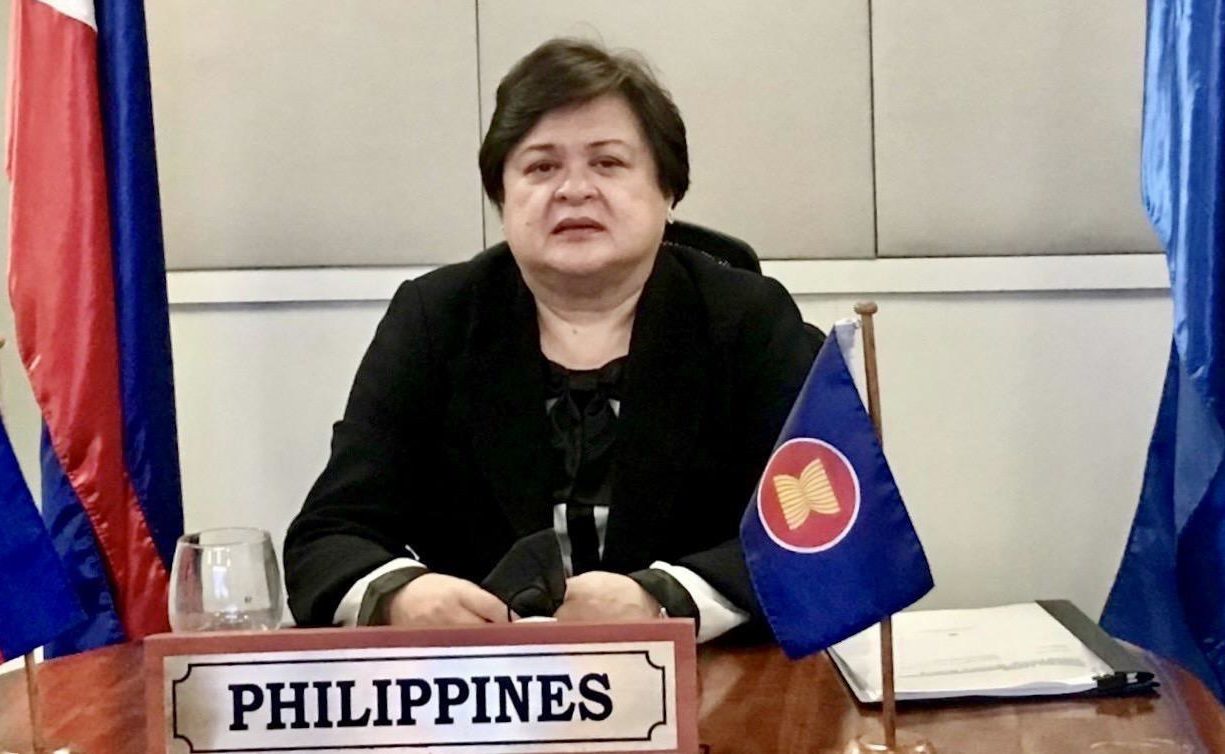PH eyes ‘triangular’ pact with India, Japan

Foreign Undersecretary Theresa Lazaro. (Photo from the Office of Asean Affairs)
The Philippine government is exploring the potential of a “triangular cooperation” with Japan and India to strengthen the security and economic sectors for peace and stability in the Indo-Pacific region.
Foreign Undersecretary Theresa Lazaro on Friday said a partnership among the three countries would not only provide collaboration in the field of security but also boost economic and development opportunities that would be “directly felt by the people.”
Against China agenda
“The prospect for triangular cooperation between the Philippines, India and Japan falls neatly into this narrative. This partnership can help drive the economic engines of these countries towards shared economic prosperity in the region,” she said at a conference organized by the Stratbase ADR Institute in Makati City.
Geopolitical expert Dr. Jagannath Panda pointed to the need for cooperation among the Philippines, Japan and India to resist China’s “revisionist” agenda.
In his keynote presentation, Panda showed photos of maps that indicated China’s nine-dash line demarcation of its claims to nearly the entire South China Sea.
He said the three countries must come together to resist China’s unilateral claims.
“The background note that will really bring this trilateral into a success is the revisionism resistance that these three countries are actually holding against China and against the authoritarian powers,” he said.
Freedom of navigation must be maintained, and the commercial interests of the three countries must also be protected, according to Panda, referring to the naval and commercial traffic through the South China Sea, one of the world’s strategic waterways where there are multiple conflicting maritime claims.
2 other pacts
“We not only need to preserve the status quo but we also need to resist authoritarian revisionist tendencies that China and some of the authoritarian countries are promoting in the region,” he said.
According to Lazaro, the Philippines currently has two trilateral pacts, one with Indonesia and Malaysia to deal with piracy and terrorism in their common maritime borders, and another with the United States and Japan to enhance their capabilities for maintaining stability in the Indo-Pacific region.
READ: PH-Japan-India cooperation urged to boost Indo-Pacific stability
“In concrete terms, the confluence of the two seas can be construed as a natural connection that paves the way for the intersection of interests and goal congruence among the varied actors in the Indo-Pacific,” Lazaro, said referring to the Indian and the Pacific Oceans.
‘Geopolitical logic’
In an interview with reporters after the conference, the Philippine foreign affairs official said that forging a trilateral pact with Japan and India still needed to go through a series of negotiations and processes before it could be formalized.
The Philippines, India and Japan have separate territorial and maritime disputes with China.
Indian Ambassador Shambu Kumaran underscored the need for the three countries to join forces and focus on maritime security in addition to their bilateral relations with each other.
“The geopolitical logic of this partnership is very visible given the recent developments in the region, especially the maritime domain. Naturally, both India and Japan have prioritized our partnership with the Philippines in the area of maritime security and I would think that the maritime domain will be a possible area for us to work together,” Kumaran said.
Cruise missiles
The Philippines and India have upgraded their military ties with the purchase by Manila of an P18.9-billion Indian missile defense system.
The BrahMos supersonic cruise missiles are expected to arrive “within the first quarter” of 2024, a senior military official privy to the BrahMos deal but was not authorized to speak to the press told the Inquirer.
The Philippines and BrahMos Aerospace Private Ltd.—an Indian-Russian joint venture—signed a deal in January 2022 for three batteries of the world’s fastest cruise missiles as part the Philippine Navy’s shore-based antiship missile system project.
Manila is the first foreign customer of the BrahMos missiles.